|
It has been over two months since my last BLOG on COVID-19 vaccines. Since that time millions of people in several different countries have been vaccinated, new vaccines have been approved for use, and new virus variants have emerged. This blog is about the latest developments on the COVID-19 vaccine front. Johnson & Johnson (J&J) Vaccine: The J&J vaccine was given Emergency Use Authorization by the F.D.A. on February 27, 2021. According to Johnson & Johnson’s press release, the vaccine was 72% effective at preventing moderate to severe COVID-19 infections in the U.S. (https://www.jnj.com/johnson-johnson-announces-single-shot-janssen-covid-19-vaccine-candidate-met-primary-endpoints-in-interim-analysis-of-its-phase-3-ensemble-trial). What this means is the vaccine prevented all illness, including mild symptoms, in 72% of the recipients of the vaccine. This may sound disappointing in comparison to the 94-95% efficacy of the Pfizer-BioNTech and Moderna vaccines, but it was highly effective at limiting serious disease. J&J’s vaccine was 85% effective overall at preventing serious illness across all regions that it studied (U.S., Argentina, Brazil, Chile, Columbia, Mexico, Peru, and South Africa). More importantly, the vaccine demonstrated complete protection against COVID-19 related hospitalizations and deaths, the true benchmarks of the success of this vaccine. The vaccine had an overall efficacy rate of 64% against the more virulent South African strain, but an 82% rate against serious illness. It is important to note that the J&J trials were conducted when more variants were circulating in the population than when the Pfizer-BioNTech and Moderna trials were being conducted. This could account for the reduced efficacy being reported in the U.S. and elsewhere. Here are the key attributes of this new vaccine:
The J&J vaccine is a breakthrough. It doesn’t need sophisticated freezers for transport and storage, making it accessible to remote and underserved areas, as well as in second and third world countries. The fact that it is effective after a single dose makes it a great choice when scheduling a second shot is problematic, such as in homeless populations, the homebound, migrant farm workers, and hard to reach populations around the world. If I was the vaccine czar, the J&J vaccine would be reserved for these vulnerable populations. Pfizer-BioNTech Vaccine: On February 12, 2021, Pfizer-BioNTech announced that the U.S. government had exercised its option to purchase an additional 100 million doses of their vaccine. This brings the total number of doses to be supplied to the U.S. to 300 million, enough for 150 million people. Here are some recent developments:
Moderna Vaccine: On February 11, 2021 Moderna announced that the U.S. government had agreed to purchase an additional 100 million doses of its vaccine. This brings the total confirmed order commitment to 300 million doses, enough to fully vaccinate 150 million Americans. Moderna is on track to deliver the first 100 million doses in the first quarter of 2021, the next 100 million in the second quarter, and the new order of 100 million doses by the end of July 2021. Even without any new vaccines becoming available, the U.S. now has enough contracted vaccines to cover all of its eligible citizens, and then some. Here are some recent developments:
AstraZeneca/University of Oxford Vaccine: This vaccine was first approved for emergency use in the United Kingdom on December 30, 2020 for individuals 18 years of age and older. The vaccine requires a two-dose regimen, with an interval of between four and twelve weeks between doses. There has been some debate about the actual efficacy of the vaccine, with ranges from 62-82%. But clinical trials in the United Kingdom have shown the vaccine to be safe and highly effective at reducing hospitalizations and deaths. Because of the confusion over some of the reported data, the U.S. is conducting a trial of its own. Approval in the U.S. may still be a few months away. The vaccine can be transported and stored at normal refrigeration temperatures (36-46°F) for at least six months, making it a good candidate for use in 2nd and 3rd world countries. Here are some recent developments:
Novavax: On January 28, 2021, Novavax announced that its vaccine demonstrated 89% efficacy in a Phase 3 clinical trial conducted in the United Kingdom (https://ir.novavax.com/news-releases/news-release-details/novavax-covid-19-vaccine-demonstrates-893-efficacy-uk-phase-3). Preliminary studies suggest that it is very effective at preventing severe disease from the South African strain of COVID-19. Phase 3 clinical trials are underway in Mexico and the U.S. and should be concluded by the end of March. The vaccine requires two-doses, but doesn’t require the strict storage requirements of the Pfizer-BioNTech or Moderna vaccines. In September Novavax entered into an agreement with a major Indian vaccine manufacturer that could produce up to 2 billion doses per year. The U.S. has an agreement to purchase up to 110 million doses, with most of the remaining doses going to the COVAX Alliance. Look for this vaccine to be approved for use in the second half of 2021. There are currently 71 COVID-19 vaccines in clinical trials on humans, 20 of these have reached large scale Phase 3 trials around the world. In addition to the five vaccines that I detailed above, China has two vaccines it has approved for use, Russia has one vaccine, as does India. Virus Variants: The longer the novel coronavirus circulates, the more people that become infected, giving the virus opportunities to mutate into more dangerous variants. Any new variant has the potential of being more contagious, result in more severe illness, and be resistant to currently available vaccines. This is why it is so important to speed up the rate of vaccinations and to continue safe practices, until herd immunity is reached. Widespread testing for COVID-19 is very important to monitor the development and spread of new variants. Here are some of the new variants which have recently been identified:
Vaccine Equity: As of this writing approximately 240 million doses of vaccine have been administered around the world (https://www.cnn.com/interactive/2021/health/global-covid-vaccinations/). According to the United Nations, ten countries administered 75% of all vaccines, and 130 countries have yet to receive a single dose. The COVAX Alliance, led by the World Health Organization, is working with rich countries to provide vaccines to poor ones. But it is off to a slow start. COVAX delivered its first shipment of 600,000 doses of the AstraZeneca vaccine to Ghana on February 24, 2021. Ghana is one of 190 countries which have signed up to receive vaccines through the alliance. The COVAX Alliance currently has agreements with AstraZeneca and Novavax for COVID-19 vaccines, but the numbers are far short of what is needed. It is important to remember that no one is immune from COVID-19 until we are all immune. What We Still Don’t Know: We are a year into this pandemic, vaccines have only been available in limited supply for about two months, and there are a lot of unanswered questions. Once vaccinated, are people still able to spread the virus? Once vaccinated, how long will immunity last? If you had COVID-19, how long does immunity last? When will herd immunity be reached? Well, this is the real question, and we all need to be patient.
As of today, about 14.6% of the U.S. population has received at least one shot of vaccine, and a tiny fraction of the world’s population has been vaccinated. It is important to get vaccinated when it is your turn, but it is also important to continue to wear your face mask, practice social distancing and continue using good hygiene. We can't afford to let our guard down now that there is light at the end of the tunnel. We won't know that herd immunity has been reached until new cases of COVID-19 infections are rare. The speed with which the various COVID-19 vaccines have been developed and gotten into peoples’ arms is truly remarkable. All of the vaccines currently available in the U.S. are highly effective at minimizing serious illness and death. Coronaviruses have been circulating within the human population for centuries, and the coronavirus that causes COVID-19 will be with us for a long time. The sooner that the majority of the world’s population becomes vaccinated, the sooner the pandemic will be over, and the quicker we will all return to a semblance of “normalcy”. If you enjoy reading this type of commentary please subscribe to my blog and tell a friend. You will receive an email notification when new blogs are posted. The email will come from the site’s email: armchairamerican1776 @gmail.com. Thanks, Armchair American
0 Comments
Leave a Reply. |
AuthorThe Armchair American. Archives
November 2024
Categories
All
|

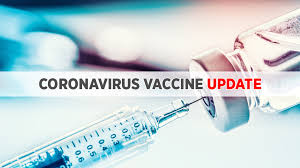
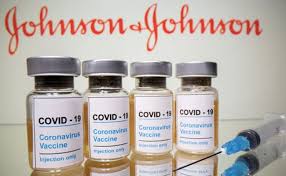
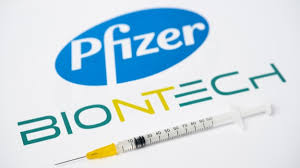

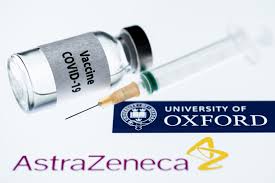
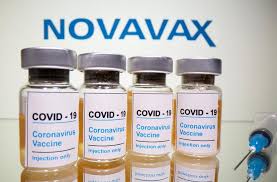
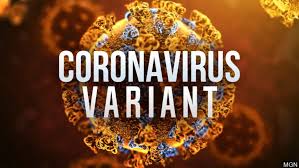

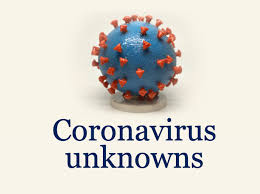

 RSS Feed
RSS Feed